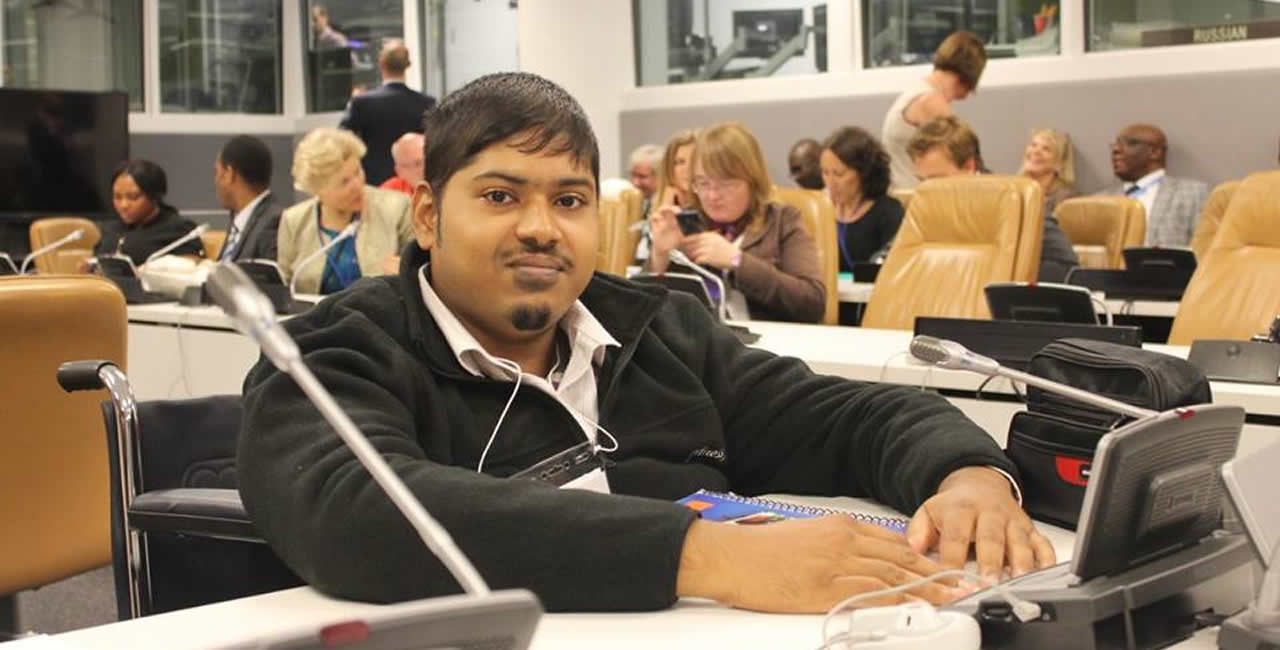
Work from home, or telecommuting, is now gaining ground among both employees and entrepreneurs. Working from home offers many advantages, but the absence of an appropriate legislative framework so far hindered the development of this concept in Mauritius. However, the Government has finally promulgated the relevant regulations, thus giving force to the measure announced in the 2018/2019 budget in June 2018.
The ‘Work@Home Scheme’ is one of the few Budget measures announced last June that has taken time to be implemented. This work concept is however very popular across the world because of its multiple economic and social benefits. Originally from the United States, work from home, teleworking or telecommuting is about working remotely, either from home or from a designated zone, with access to technology and the internet.
With flexible hours, the worker can organise his activities and bring a better balance between private and personal life."
With teleworking, one does not need to worry about traffic jams or uncomfortable commuting in crowded buses. Working from home saves the employee at least two hours per day, which he can put to productive use. This also leads to less stress and higher productivity. With flexible hours, the worker can organise his activities and bring a better balance between private and personal life. The most important thing is that the worker is judged on the output rather than the number of hours spent working.
The employer also benefits as with telecommuting, there is no transport cost, less space is required at the office, which means less rental or maintenance costs. There is no need to worry about absenteeism and more productive workers means higher returns for the employer.
Working from home also has its disadvantages. For the employer, there is a lack of oversight as direct supervision is not possible."
The drawbacks
Despite its numerous benefits, working from home also has its disadvantages. For the employer, there is a lack of oversight as direct supervision is not possible. The employee can experience diminished productivity because of too much distraction at home. One of the most common problems is that of isolation, where the employee soon get used to a solitude routine. Lack of interaction with peers as is the case at the office may also lead to loss of brainstorming ability. Teleworking is also not suitable for all economic sectors.
There is no need to worry about absenteeism and more productive workers means higher returns for the employer."
Entrepreneurs at home
Besides employees, there are also entrepreneurs who operate from home. The Business Facilitation Act 2006 provides for the launch of a small business in less than three working days. Small entrepreneurs are allowed to carry out certain activities from their place of residence provided that the activity does not cause inconvenience to the neighbourhood. If the activity meets the established criteria, then a ‘Building and Land Use Permit’ is not required. To better facilitate small entrepreneurs, the authorities brought new regulations under the Local Government Act in 2015. These regulations set out a list of activities, most of which can be done at home and which are exempt from the Building and Land Use Permit. The objective is to encourage entrepreneurship and ease the burden of SMEs, as a small entrepreneur would not have the capital to rent a building or office space. Work from Home is already a reality for so many entrepreneurs.
Extract from Budget Speech 2018/2019
Promoting Work@Home
- “Madam Speaker, our path to a high-income economy will rest on productivity. And to raise productivity we must go beyond the traditional workspace. Accordingly, we are introducing a Work@Home Scheme.
- The Government will allow for a double deduction from tax, of the wage and salary costs of employees under the Work@Home for the first two years.
- In addition, employers under that scheme will be granted an annual tax credit of 5 percent for three years on investment in the required IT system.
- Madam Speaker, we are targeting some 3,500 new job opportunities under that scheme and I am sure that this initiative will empower more women to join the labour force.
Some jobs that can be done from home
- Article Writing – Jobs such as writing, translating, transcription, etc can easily be done from home.
- Call Centre - If you have good phone communication skills then call centre work is possible from home. Many people can answer customer service calls at home.
- Research work – It is possible to do desktop research work from home. There are many graduates in various fields and can do this type of work at home.
- Graphic Design/Website development – This is another activity that can be easily done from home. In fact, the ICT sector offers many ‘Work from Home’ opportunities.
- Social media management – Most small brands and entrepreneurs often don’t have the time to invest in managing their social media accounts. So they hire people to manage the different social media accounts for them.
- Bookkeeping and accounting – Accounting graduates can offer basic accounting services from home to small and medium businesses.
Yaaseen Edoo : “Work from Home is suitable for people with disabilities”

Yaaseen Edoo, recipient of the Queen’s Young Leaders Award, is fighting tirelessly for people with disabilities to avail of opportunities to work from home. “The ‘Work from Home’ scheme is a solution for people with disabilities who want to work but cannot move to the employer’s place because of a lack of adapted transportation,” says Yaaseen Edoo, who is looking for a job. “I cannot find work because I cannot move easily. It is difficult for people with impaired mobility to travel by public transport. Worse, infrastructure is not always up to standard, pavements are not designed for wheelchairs, and some buildings do not have disability friendly access.” Yaaseen Edoo expects the authorities to come with a legislative framework to encourage employers to recruit people with disabilities and empower them to work from home.
 Roshan Seetohul : "A laudable idea but not easily implementable”
Roshan Seetohul : "A laudable idea but not easily implementable”
Roshan Seetohul, Vice-President of the Euro CRM Call Centre, says he is in favour of the ‘Work from Home’ concept. However, he reveals that the idea has been around for quite a long time and though the intention is good, it is the implementation that is somewhat difficult. “There are many aspects to look into. For example, some customer contracts specify that the service must be offered at a business location,” he says. There is also the question of investment in equipment and maintenance. The concept is not yet well developed in Mauritius but he believes it will come with time.
 Eric Ng : “This is suitable for the service sector”
Eric Ng : “This is suitable for the service sector”
Economist Eric Ng says the ‘Work from Home’ is a good idea, but cannot be implemented in all sectors of the economy. “It’s more appropriate for the services sector,” says the economist, who believes it will mainly benefit women, especially those with young children. “But the proper regulations for the rights of workers who work from home must be firmly in place. The regulations must cover aspects such as the number of hours of work and the hours when the employee must be constantly available to the employer.” He states that those working at home under such a program will have to benefit from an allowance to cover expenses incurred at home, such as electricity, the internet, equipment, etc. “The employer will also be making savings on these items.”
The ‘Work from Home’ regulations

Payment of work related expenses: An employer shall refund to a homeworker – (a) any costs incurred for the use of electricity, water, telecommunication or such other facilities in connection with work performed at home; (b) expenses incurred for maintenance of tools and equipment provided to the homeworker for the performance of his work; (c) the equivalent of the return bus fare for travel – (i) to and from his employer’s business premises; (ii) to meet customers or any other persons in relation to his work; or (iii) for any other purpose in relation to his work as may be agreed with his employer; (d) any other expenses incurred as may be agreed between the homeworker and his employer; and (e) any other costs or expenses incurred in relation to his work
The Employment Rights (Working from Home) Regulations 2019 have been promulgated. The regulations make provision for a worker wishing to make a request to the employer to work from home; or for the employer requesting that a worker works from home. The law requires the employer, where appropriate, to conduct a suitable and sufficient assessment at the proposed place where work is to be performed so as to ensure that the proposed place is free from any risk to the safety and health of the homeworker and members of his family.
 Radhakrishna Sadien : “There are many implications”
Radhakrishna Sadien : “There are many implications”
Radhakrishna Sadien, Chairman of the Government Services Employees Association (GSEA), says that the Budget measure relating to working from home is one of good intention; however, it has many implications. The trade unionist feels it is not easy to implement such a measure, mainly because of legal constraint. He recalls that this measure was announced in the Budget without prior consultation with main stakeholders, including trade unions, so he believes there has not been any preparatory work initially. “Work from home cannot apply to all sectors, and even for the public sector, it cannot be widely implemented,” he says. He fears that, with such a scheme, employers may use this as a pretext to cut down on fringe benefits of employees. “For example, this will have an impact on transport allowance, sick leave, casual leave, etc. How do we account for these?” Radhakrishna Sadien also states that this might open doors for abuse, such as using illegal workers to do the job. He proposes that any implementation of such a scheme should first be discussed at length and in depth in order to understand the implications and to address all issues.
 J'aime
J'aime














